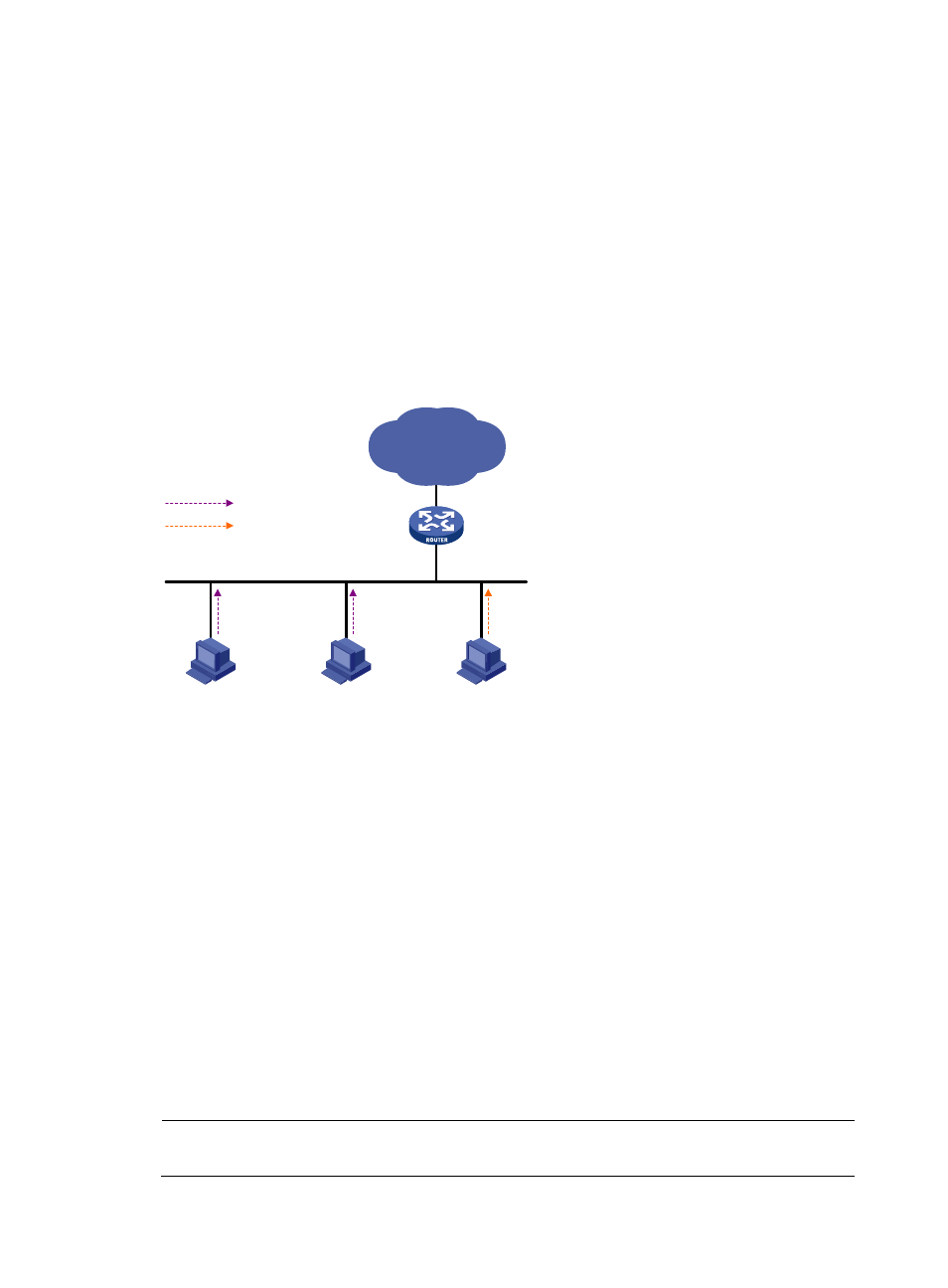Mld ssm mapping – H3C Technologies H3C S12500 Series Switches User Manual
Page 363

347
MLD SSM mapping
The MLD SSM mapping feature enables you to configure static MLD SSM mappings on the last hop router
to provide SSM support for receiver hosts that are running MLDv1. The SSM model assumes that the last
hop router has identified the desired IPv6 multicast sources when receivers join IPv6 multicast groups.
•
When a host that is running MLDv2 joins a multicast group, it can explicitly specify one or more
multicast sources in its MLDv2 report.
•
A host that is running MLDv1, however, cannot specify multicast source addresses in its MLDv1
report. In this case, you must configure the MLD SSM mapping feature to translate the (*, G)
information in the MLDv1 report into (G, INCLUDE, (S1, S2...)) information.
Figure 95 Network diagram
As shown in
, on an IPv6 SSM network, Host A and Host B are running MLDv1 and Host C is
running MLDv2. To provide SSM service for all the hosts if MLDv2 is not available on Host A and Host
B, you need to configure the MLD SSM mapping feature on Router A.
With the MLD SSM mapping feature configured, when Router A receives an MLDv1 report, it checks the
IPv6 multicast group address G carried in the message:
•
If G is not in the IPv6 SSM group range, Router A cannot provide the SSM service but can provide
the ASM service.
•
If G is in the IPv6 SSM group range but no MLD SSM mappings that correspond to the IPv6
multicast group G have been configured on Router A, Router A cannot provide SSM service and
drops the packet.
•
If G is in the IPv6 SSM group range, and the MLD SSM mappings have been configured on Router
A for multicast group G, Router A translates the (*, G) information in the MLD report into (G,
INCLUDE, (S1, S2...)) information based on the configured MLD SSM mappings and provides SSM
service accordingly.
For more information about the IPv6 SSM group range, see "Configuring IPv6 PIM."
NOTE:
The MLD SSM mapping feature does not process MLDv2 reports.
MLDv1 report
MLDv2 report
Router A
Querier
Host A (MLDv1)
IPv6 SSM
Receiver
Host B (MLDv1)
Receiver
Host C (MLDv2)
Receiver